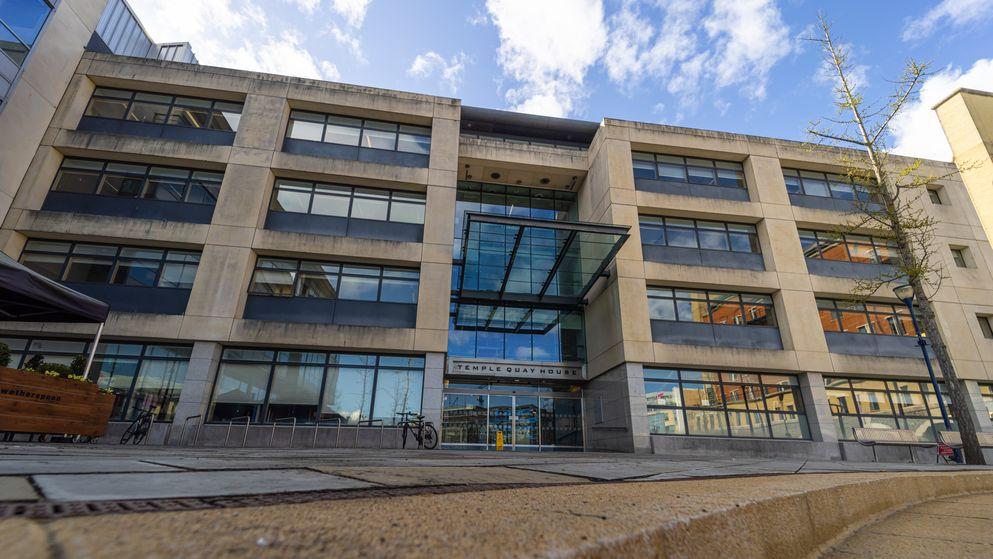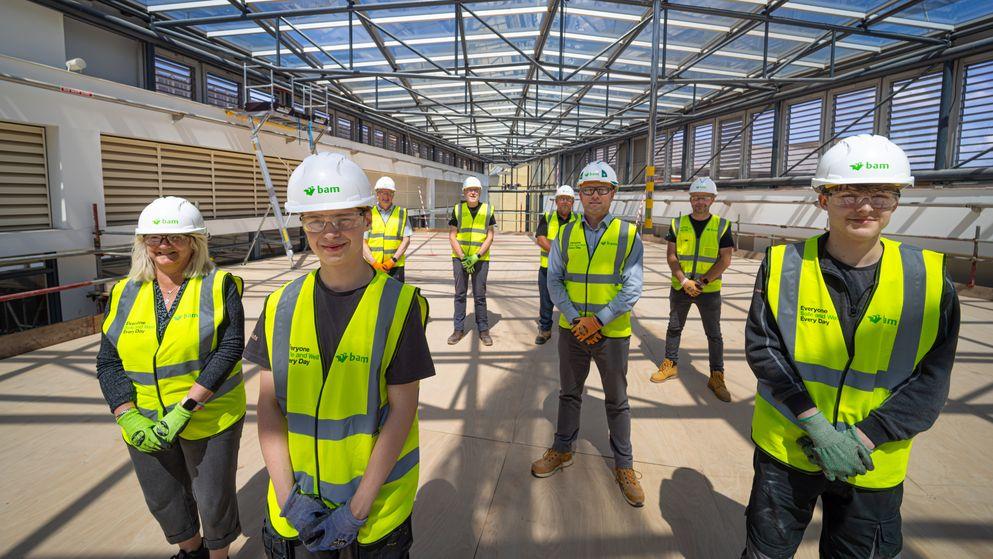
BAM’s Temple Quay House transformation scoops award and showcases sustainable and socially responsible development that benefits Bristol
BAM’s Temple Quay House transformation scoops award and showcases sustainable and socially responsible development that benefits Bristol
- £7 million injected into local supply chain and £48,250 in social value created
- Over 400 tons of CO₂ emissions saved and 45 tons of waste saved from landfill
- 72 local jobs and 23 apprenticeships created
BAM is proud to announce the sustainability and social impacts of its Temple Quay House redevelopment in Bristol for the Government Property Agency (GPA), reflecting exceptional collaboration between the private and public sectors.
The transformation of Temple Quay House has provided circa 13,100m² of high-quality new office space over six floors without the need for demolition, while also being a beacon of sustainability, social value and community engagement. The project sets a precedent for government estate decarbonisation and circularity and has been awarded a Silver Considerate Constructors Scheme (CCS) National Award.
The CCS awards celebrate exceptional sites, organisations and individuals who have demonstrated outstanding commitment to the Code of Considerate Practice in the areas of Community, Environment and Workforce.
At the heart of the Temple Quay House redevelopment is both BAM’s and the GPA’s commitment to sustainability and the circular economy by focusing on reuse and recycling of materials.
Following a local needs analysis by the GPA, BAM partnered with Collecteco to donate over 4,000m² of carpet tiles to various good causes. This includes recarpeting charity shops, educational institutions and churches, allowing organisations to redirect funds to their core missions instead of refurbishment costs.
This initiative has helped to generate £48,250 in social value and when combined with wider insulation and lighting reuse and recycling, has saved over 400 tons of CO₂ emissions and diverted 45 tons of waste from landfill.
The project has also been a catalyst for job creation and community engagement in Bristol. BAM’s efforts have resulted in the creation of 72 local jobs and 23 apprentice opportunities, with 598 weeks of training. A partnership with Whitecroft Lighting also led to the launch of the Bright Futures Academy, a 12-month programme aimed at upskilling apprentices in lighting, sustainability, and wellbeing.
Collectively, the project has facilitated a spend of £7 million in the local supply chain, as well as donating £6,300 to community groups and £1,700 to foodbanks.

Kurt Williams, Project Manager, BAM UK & Ireland, comments:
“The Temple Quay House redevelopment stands as a testament to the power of sustainable and socially responsible development, reflecting BAM’s ethos of building a sustainable tomorrow.
“Not only have we transformed a tired asset into sustainable high quality new office space without the need for demolition, we have also created meaningful social value that benefits the city and its people. Partnerships have been key to this and we are extremely grateful to the GPA whose forward-thinking vision enabled these great outcomes, as well as our delivery partners and suppliers who have supported this transformation.”
Rachel Ashley, Project Director at the GPA, said: “The redevelopment of Temple Quay House is a key priority for our Government Hubs Programme and BAM is making good progress since being appointed as the contractor. Our ambition is to ensure our hubs secure social value benefits to the local region, while reducing carbon emissions as we strive to create a smaller, greener and better government office estate. We remain committed to delivering a modern and sustainable office space for over 2,000 civil servants in Bristol and look forward to continuing to work with BAM on this project.”
Located in the centre of Bristol, Temple Quay House will provide accommodation for staff from 18 government departments and agencies. Once finished, the Government Hub will have an upgraded Energy Performance Certificate and be connected to Bristol’s District Heat Network, reducing the building’s carbon emissions significantly.
By tracking reuse by volume and carbon savings, BAM is proud to be setting a data-led precedent for other public sector projects.


